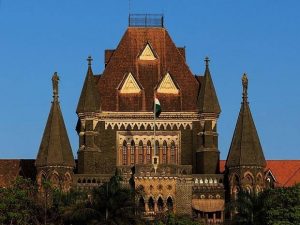
The Bombay High Court has disposed of a Public Interest Litigation (PIL) requesting the High Court to issue mandatory guidelines to the Caste/Tribes Scrutiny Committee of the State of Maharashtra in respect of the procedure to be followed while issuing caste/validity certificates when the validity certificates are issued to the applicant’s blood relatives.
The Petitioner further sought directions to initiate action in furtherance of the Government Resolution dated 15th November, 2017 and also directions are sought against the respondent no.1 (State of Maharashtra) to consider appropriate amendments to the Maharashtra Scheduled Tribes (Regulation of Issuance of Verification) Certificates Rules, 2003.
The advocate for the petitioner submits that in respect of the rules regarding issuance of the validity certificates to the Scheduled Caste, Other Backward Class, Vimukta Jati Nomadic Tribes and other castes are concerned, except Scheduled Tribes the rules prescribe that if the validity certificate is issued to blood relative, the same should be considered. However, no such rules exist as far as rules governing the Scheduled Tribes are concerned.
It is further submitted that in the year 2017 under the Government Resolution, the Committee was constituted to recommend the amendment to the rules. However, no further steps are taken pursuant thereto. The learned advocate submits that this Court may issue mandatory guidelines to the Scheduled Tribes Scrutiny Committees and direct them to issue the validity certificates to the persons whose blood relatives have been issued with validity certificate and confirmed by the Court.
Birendra Saraf, Advocate General submits that the Committee was constituted, where the Ministers in the cabinet were involved. The cabinet has undergone change. In 2019 Tribal Advisory Committee was constituted. The amendments to the rules are to be dealt with by the State Legislature.
There cannot be a blanket direction to the Committee to issue validity certificates if the validity certificate is issued to the paternal relative. In case a paternal relative has obtained validity certificate by playing fraud or misrepresentation, the Committee can certainly look into the same while negating the claim of a person. Of course, if the vigilance is conducted and all the documents which are before the Committee were also before the Committee while issuing validity certificate, the same would be relevant for the Committee to consider. The said aspect has been dealt with in catenae of decisions of the Court. In that regard no further directions are required , the Division Bench of Acting Chief Justice S.V. Gangapurwala and Justice Sandeep V. Marne.
As far as amendments to the rules are concerned, rules are to be amended by the legislature the High Court said that it cannot direct the legislature to frame rules in a particular manner. It is the wisdom of the legislature to frame the rules. The Scrutiny Committee performs a quasi-judicial function. It has to appreciate the evidence, such as documents on record, so also has to conduct various tests, such as affinity test, home inquiry and arrive at the conclusion.
The larger Bench of the Apex Court in a recent judgment in the case of Mah. Adiwasi Thakur Jamat Swarakshan Samiti vs. The State of Maharashtra & Ors. in Civil Appeal No. 2502 of 2022 dated 24th March, 2023 has laid down law with regard to the affinity test and also the appreciation of the documents so also the validity certificates issued to the paternal relatives. The Scrutiny Committee certainly is bound by the judgments of the Apex Court and the High Court , the Court observed further.
The post Bombay High Court disposes of PIL seeking guidelines on issuance of caste certificates in Maharashtra appeared first on India Legal.

Please don't enter any spam link in comment box ConversionConversion EmoticonEmoticon